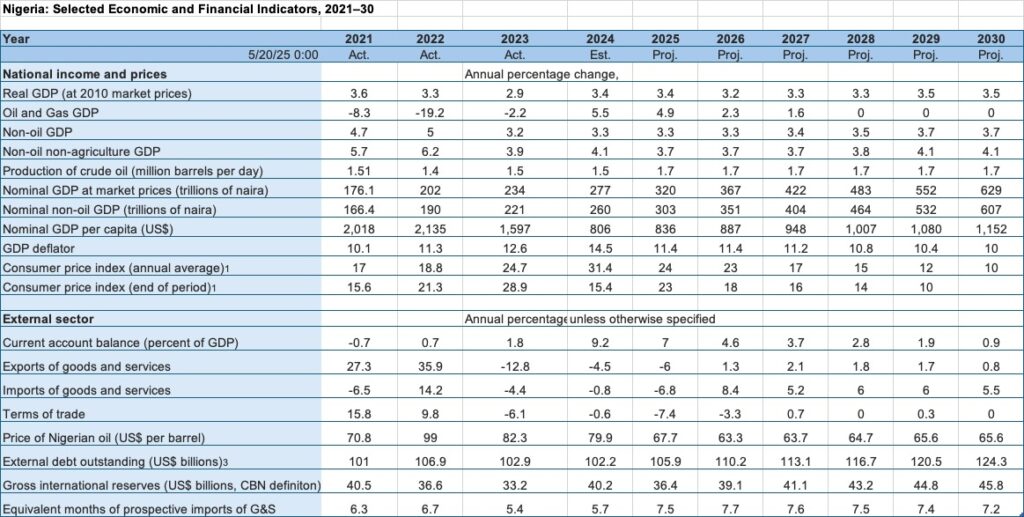The IMF has released its Article IV reports, which are an outcome of an assessment of the economy and consultations with Nigerian economic authorities.
The IMF commended Nigeria for its successful implementation of critical reforms over the last two years and noted the gains in macroeconomic stability and resilience. It stated that most of the Nigerian population is facing heightened economic strains as a direct result of the reforms’ effects and suggests an agile economic policy to mitigate the impact and spur economic growth.

The board specifically praised the monetary authorities for ending ways and means financing, liberalizing the foreign exchange market, raising bank minimum capital thresholds to strengthen the financial system, increasing efforts to enhance financial inclusion, and introducing risk-based supervision for mortgage and consumer lending schemes.
The board also praised the fiscal authorities for passing the tax reform bills and noted their role in boosting development spending and improving debt sustainability. They also urged faster cash transfers to the poorest to help offset the impact of the cost-of-living crisis.
The board highlighted several disadvantages, including food inflation, insecurity, and the quality of data provided by the fiscal authorities. It further proposed measures such as enhancing security, reducing bureaucratic hurdles, investing in agricultural productivity, increasing electricity supply, expediting credit to the private sector, and allocating more resources to health and education. The board also committed to providing capacity development support to enhance data quality, thereby enabling informed decision-making.

The report then forecasts a GDP growth outlook of 3.2% for 2025, supported by increased oil production, the commissioning of a new refinery, and a resilient services sector.